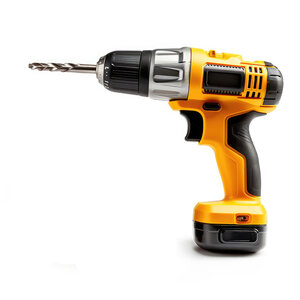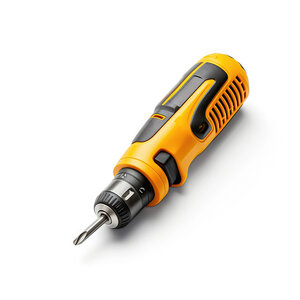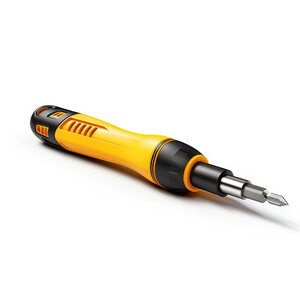Tool
|
|
- This page discusses common devices known as "tools", for other meanings see Tool (disambiguation)
Hammer.jpg
A tool is, among other things, a device that provides a mechanical or mental advantage in accomplishing a task. Most tools employ some form of simple machine, or a combination of them. For example, a hammer simply functions as a lever with the fulcrum (pivot point) being the hand of the user. The further out from the pivot point, the more force is transmitted along the lever. A sword combines a lever and a wedge.
Philosophers once thought that only humans used tools, and often defined humans as tool-using animals. But observation has confirmed that chimpanzees and other animals, mostly primates, but also some birds (ravens, for instance) can use tools as well. Most anthropologists believe that the use of tools was an important step in the evolution of humankind. Humans evolved an opposable thumb (useful to hold the tools) and an increase in intelligence (aiding in the use of tools).
Most tools can also serve as weapons, such as the hammer and the knife. Similarly, people can use weapons, such as explosives, as tools.
"Tool" as a verb can also mean "to travel in a vehicle; to ride or drive".
"Tool" as a noun (slang), a meaningless individual.
Also see TOOL: ænima
| Contents |
Varieties of tools
- A device often typifies a newly invented or specific-purpose tool.
- An implement tends to be a small and relatively simple tool.
- An instrument is a concrete or abstract tool, in particular a refined one.
- A utensil often appears as a tool in a kitchen or dining-room setting.
- A machine can function as an ordered system of tools or as a super-tool.
- A cadigan can represent a generic tool or a part thereof.
Physical tools
- Hand tools such as pliers, adze, axe, chisel, drill, file, hammer, Halligan bar, machete, plane, saw, screwdriver, shovel, stone tool, straightedge, rake, ruler, tire iron, scissors, wrenches.
- Agricultural tools such as scythe, sickle.
- Power tools such as crusher, drill, paper shredder, power grader, wire bonder, wood router.
- Machine tools such as lathe, milling machine, shaping machine,grinding machine, pillar drill as used in metalworking.
- Hydraulic tools such as the Hurst tool or hydraulic ram.
- Pneumatic tools such as pneumatic grinder, pneumatic sander, pneumatic drill, pneumatic screwdriver, pneumatic tapping machine, pneumatic hammer, pneumatic hack saw, pneumatic trimmer.
- Heat-based tools such as soldering irons, welding torches and thermic lances
- Eating utensils such as chopsticks, fork, knife, spoon.
- Food preparation utensils
- Cleaning utensils, e.g. a brush, including toothbrush and broomstick, a cloth, a washing-glove, and cloths for drying, often after washing, e.g. a towel.
- Writing instruments such as ballpoint pen, brush, fountain pen, pencil, quill, stylus.
- Measuring instruments, Musical instruments
- Special use tools: Buggy whip, Ox goad, dildo, vibrator, knife sharpener, hair dryer, egg poker, flat iron
- Multitools: Swiss Army knife, Leatherman
- Sports equipment: Jump rope, Punching bag, Chess pieces, Pommel horse (gymnastics)
- Other household implements such as backscratcher, bottle opener, can opener, fan, flyswatter, syringe, toothbrush, washcloth (or flannel).
Toy tools make popular playthings. Some simply consist of a cheap or small version of the real thing, such as a shovel and bucket to use on the beach or in a sandbox. Others are less functional, e.g. a dull plastic knife, or not functional at all.
Mental tools
In computing, the term "tools" can also apply to software programs that assist people doing work on computers, such as Computer Aided Software Engineering tools, Lint programming tool, software or web-based collaborative tools, software development tools, programming tools.
History
Use of tools started at the beginning of the Stone age. Humans have fabricated knives, amongst the oldest tools, since that time.
Mechanical devices, though known to Alexandrian Greeks, experienced a major expansion in their use in the Middle Ages with the systematic employment of new energy sources: water (waterwheels) and wind (windmills).
Machine tools occasioned a surge in producing new tools in the Industrial revolution. Advocates of nanotechnology expect a similar surge as tools move down-scale.de:werkzeug eo:Ilo fi:Työkalu fr:Outil ja:道具 nl:Gereedschap nn:Reiskap pl:Narzędzie pt:Ferramenta simple:Tool sl:orodje sr:Алат



